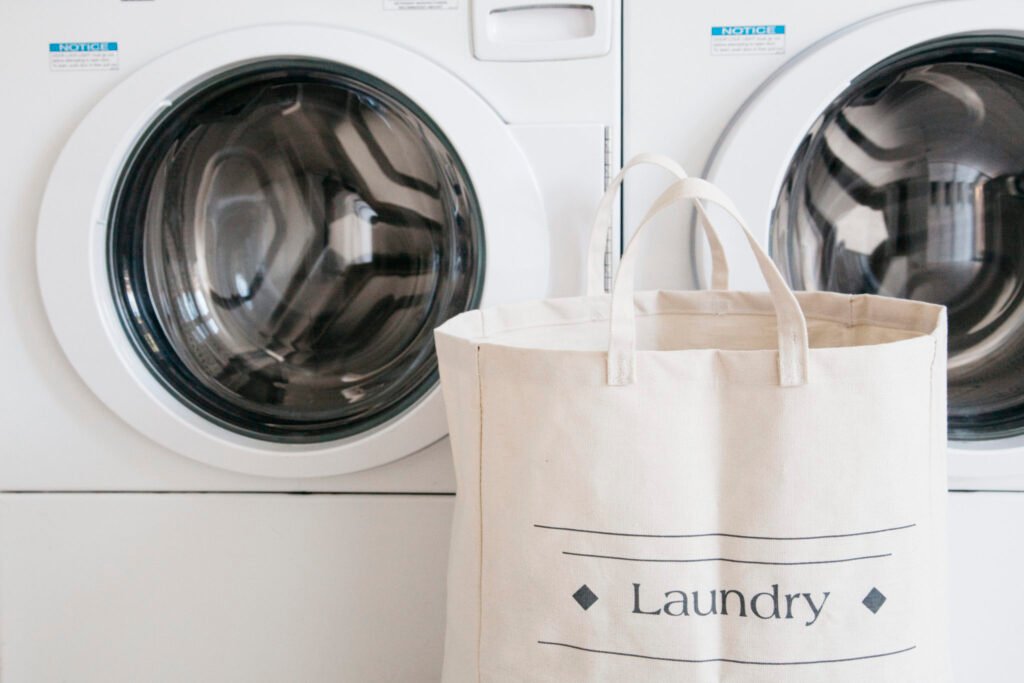Laundry is a regular chore in most households, but have you ever considered the environmental impact it can have? Sustainable laundry practices are gaining importance as people become more conscious of their carbon footprint and strive to reduce their environmental impact. In this article, we will explore various sustainable laundry practices that can help you make a positive difference while doing laundry.

Sustainable Laundry Practices: Tips for Reducing Environmental Impact
1. Using Energy-Efficient Washing Machines
Investing in an energy-efficient washing machine is a significant step towards sustainable laundry practices. These machines are designed to use less water and electricity, thus reducing their overall environmental impact. Look for appliances with high Energy Star ratings to ensure optimal efficiency.
2. Washing with Cold Water
Heating water accounts for a significant portion of energy consumption during laundry. By washing your clothes with cold water instead of hot or warm water, you can significantly reduce the energy required for each load. Coldwater washing is effective for most everyday laundry, and modern detergents are designed to work efficiently even in cold water.
3. Opting for Eco-Friendly Laundry Detergents
Traditional laundry detergents often contain harsh chemicals that can harm the environment. Opt for eco-friendly and biodegradable laundry detergents that are free from phosphates, chlorine, and other harmful substances. These detergents are not only better for the environment but also gentler on your clothes.
4. Minimizing Water Usage
Water is a precious resource, and conserving it is essential for sustainable laundry practices. Take measures to minimize water usage by selecting the appropriate water level for each load and avoiding unnecessary extra rinses. Only use the amount of water required to clean your clothes effectively.
5. Drying Clothes Naturally
Tumble drying clothes consumes a considerable amount of energy. Embrace the natural way of drying clothes by hanging them outdoors on a clothesline or using drying racks indoors. Not only does this reduce your carbon footprint, but it also helps preserve the quality and lifespan of your garments.
6. Choosing Sustainable Fabric Softeners
Traditional fabric softeners often contain synthetic chemicals that can harm the environment. Instead, choose natural alternatives such as wool dryer balls or vinegar. Wool dryer balls help soften clothes and reduce drying time, while vinegar acts as a natural fabric softener and static reducer.
7. Extending the Life of Clothes
Fast fashion has led to a culture of disposable clothing, contributing to massive textile waste. To practice sustainable laundry, focus on extending the life of your clothes. Take proper care of them, mend small damages, and wash them only when necessary. By doing so, you reduce the need for frequent replacements and contribute to a more sustainable fashion industry.
8. Embracing a Minimalist Wardrobe
Having a minimalist wardrobe not only simplifies your life but also reduces your laundry load. When you have fewer clothes, you can wear them more frequently before washing. Consider a capsule wardrobe or curating a collection of versatile, high-quality garments that can be mixed and matched to create various outfits.
9. Donating or Recycling Unwanted Clothes
If you have clothes that no longer fit or suit your style, consider donating them to charitable organizations or recycling them appropriately. Donating clothes extends their life cycle and benefits those in need. Recycling ensures that textiles do not end up in landfills, as they can be repurposed or used to create new fabrics.
10. Using DIY Stain Removal Methods
Stains are a common laundry challenge, but you can tackle them sustainably by using do-it-yourself (DIY) stain removal methods. Instead of relying on chemical-based stain removers, try natural alternatives like baking soda, lemon juice, or hydrogen peroxide. These natural solutions are effective and eco-friendly.
Benefits of Sustainable Laundry Practices
Adopting sustainable laundry practices offers numerous benefits for both the environment and individuals. By reducing water and energy consumption, you contribute to conserving valuable resources. Furthermore, eco-friendly detergents and fabric softeners help minimize chemical pollution. Lastly, embracing a minimalist wardrobe and donating or recycling clothes promote a more sustainable fashion industry.
Conclusion
With the increasing concern for the environment, practicing sustainable laundry has become crucial. By following the tips mentioned above, you can significantly reduce your environmental impact while doing laundry. Embrace energy-efficient washing machines, wash with cold water, choose eco-friendly detergents, and dry clothes naturally. Extend the life of your clothes, consider a minimalist wardrobe, and donate or recycle unwanted garments. Small changes in your laundry routine can make a big difference in creating a sustainable future.
Frequently Asked Questions (FAQs)
Q1: Can I use hot water for laundry occasionally?
Yes, you can use hot water for laundry occasionally, but it’s recommended to use cold water for most loads. Hot water should be reserved for heavily soiled items or when you need to sanitize certain fabrics.
Q2: How do eco-friendly detergents compare to traditional ones in terms of effectiveness?
Eco-friendly detergents are designed to be just as effective as traditional ones while minimizing their environmental impact. They are formulated with natural ingredients that are safe for the environment and your clothes.
Q3: Are energy-efficient washing machines more expensive?
Energy-efficient washing machines may have a higher upfront cost, but they can save you money in the long run through reduced energy and water consumption. Additionally, some countries offer incentives or rebates for purchasing energy-efficient appliances.
Q4: Can wool dryer balls replace fabric softeners?
Yes, wool dryer balls can effectively replace fabric softeners. They help soften clothes, reduce drying time, and prevent static cling without the use of chemical-based softeners.
Q5: What are some other sustainable laundry practices?
In addition to the mentioned tips, you can also consider using a front-loading washing machine, avoiding overloading the machine, and repairing or reusing broken zippers or buttons to minimize waste.
Request A Pickup